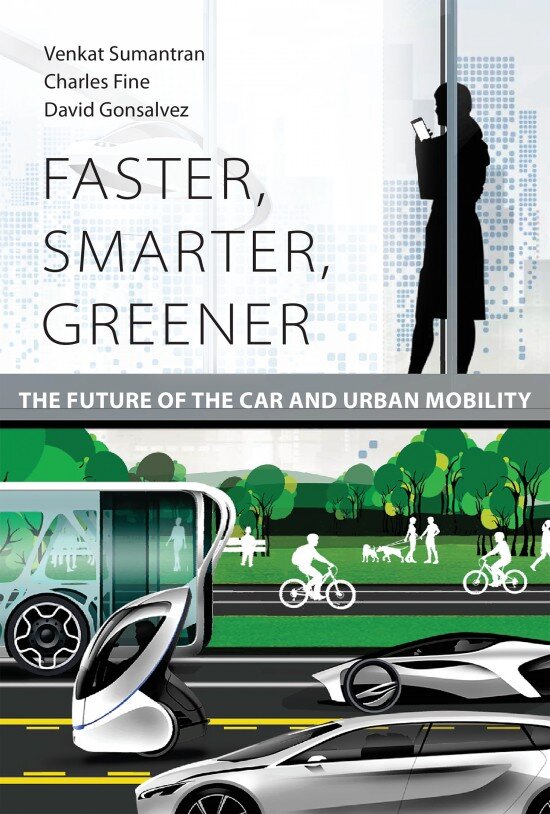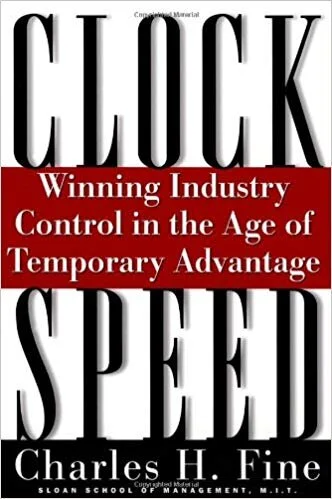Books
Faster, Smarter, Greener
The Future of the Car and Urban Mobility
By Venkat Sumantran, Charles Fine and David Gonsalvez
A call to redefine mobility so that it is connected, heterogeneous, intelligent, and personalized, as well as sustainable, adaptable, and city-friendly.
Summary
A call to redefine mobility so that it is connected, heterogeneous, intelligent, and personalized, as well as sustainable, adaptable, and city-friendly.
The twentieth century was the century of the automobile; the twenty-first will see mobility dramatically re-envisioned. Automobiles altered cityscapes, boosted economies, and made personal mobility efficient and convenient for many. We had a century-long love affair with the car. But today, people are more attached to their smartphones than their cars. Cars are not always the quickest mode of travel in cities; and emissions from the rapidly growing number of cars threaten the planet. This book, by three experts from industry and academia, envisions a new world of mobility that is connected, heterogeneous, intelligent, and personalized (the CHIP architecture).
The authors describe the changes that are coming. City administrators are shifting from designing cities for cars to designing cities for people. Nations and cities will increasingly employ targeted user fees and offer subsidies to nudge consumers toward more sustainable modes. The sharing economy is coaxing many consumers to shift from being owners of assets to being users of services. The auto industry is responding with connected cars that double as virtual travel assistants and by introducing autonomous driving.
The CHIP architecture embodies an integrated, multimode mobility system that builds on ubiquitous connectivity, electrified and autonomous vehicles, and a marketplace open to innovation and entrepreneurship. Consumers will exercise choice on the basis of user experience and efficiency, aided by “intelligent advisors,” accessible through their mobile devices.
An innovative mobility architecture reconfigured for this century is a social and economic necessity; this book charts a course for achieving it.
CLOCKSPEEED: Winning Industry Control in the Age of Temporary Advantage
By Charles H. Fine Perseus Books
This books offers exciting and well-documented case studies of noteworthy companies that have either thrived or failed in anticipating and adapting to rapid change.
Summary
"Clockspeeds are to business genetics what lifecycles are to human genetics."
Drawing upon the motif, "Learning from the fruit flies," Professor Charles Fine develops an insightful interpretation of the ways product design, process technology and supply chains define the evolutionary course of an enterprise and an industry. Fruit flies "go from egghood to parenthood to death in under two weeks;" they must genetically respond to changes in their environment swiftly or face brutal extinction. With a life span that can exceed a century, i.e., a very slow clockspeeed, the sea turtle "has evolved little since its terrestrial cousins, the dinosaurs, roamed the earth."
Focusing on the imperative of concurrent design of products, processes and capabilities, he emphasizes that "a company’s real core capability -- the inner core, if you will -- lies in the ability to design and manage the supply chain in order to gain maximum advantage, albeit temporary, in a market where competitive forces may change at lightening speed."
Facing an urgency to deliver its new product -- the personal computer (PC) -- to the marketplace, IBM abandoned its core strategy of making its primary products in house; instead, it elected to outsource the principal components of the PC, including the operating system and the CPU. ..
In this perceptive and constructive work, Professor Fine concludes "that the only lasting competency is the ability to continuously assess industrial and technological dynamics and build capability chains that exploit current opportunities and anticipate future ones. Among capabilities, this competency of selecting all others is not to be outsourced! ... In short, thinking is a core capability not to be outsourced. And the faster the clockspeed, the more frequent is the need to think and rethink."

